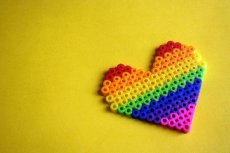New publications
Social problems of elderly gays and lesbians are named
Last reviewed: 01.07.2025

All iLive content is medically reviewed or fact checked to ensure as much factual accuracy as possible.
We have strict sourcing guidelines and only link to reputable media sites, academic research institutions and, whenever possible, medically peer reviewed studies. Note that the numbers in parentheses ([1], [2], etc.) are clickable links to these studies.
If you feel that any of our content is inaccurate, out-of-date, or otherwise questionable, please select it and press Ctrl + Enter.

The aging and health issues facing lesbian, gay, bisexual, and transgender baby boomers have been largely ignored to date. The first study on aging and health in these communities found that these older adults have higher rates of disability, physical and mental health conditions, and limited access to health care.
A study led by Karen Fredriksen-Goldsen of the University of Washington shows that preventive and intervention strategies must be developed to meet the needs of these older people, whose numbers are expected to double to 4 million by 2030.
"Health disparities among lesbian, gay, bisexual and transgender people in older age are a major public health concern," said Fredriksen-Goldsen, director of the UW institute. The health of these people reflects the historical and social conditions of their lives. And the significant barriers they face can put their health at risk.
The study highlights the unique circumstances of this group, such as fear of discrimination and the lack of children to help them. What they really need are legal services, support groups and community events to address their most common needs, the study says.
The study surveyed 2,560 lesbian, gay, bisexual and transgender people aged 50 to 95 across the United States. Researchers found that the participants had higher rates of disability, depression and loneliness, smoking and alcoholism than heterosexuals of the same age.
These older adults are also at greater risk of social isolation, which is associated with poor mental and physical health, cognitive impairment, chronic illness, and premature death. The study participants were more likely to live alone and were less likely to be with a partner than heterosexuals, who have social support and financial help from their children or spouses. Social connections are key for these groups of people because, unlike heterosexuals, most older lesbian, gay, bisexual, and transgender people rely on their partners and same-age friends.
A history of harassment and discrimination based on sexual orientation or gender identity also contributes to poor health. The study found that 80% had experienced discrimination at least once in their lifetime, including verbal and physical violence, threats of physical violence. Twenty-one percent of respondents said they had been fired from a job because of their perceived sexual orientation or gender identity. Almost four in ten had considered suicide in difficult life situations.
21% of respondents did not tell their doctors about their sexual orientation due to fear of being denied medical services.
"The lack of openness about sexuality makes it impossible to have discussions about sexual health, breast or prostate cancer risk, hepatitis, HIV risk, hormone therapy or other risk factors," Fredriksen-Goldsen said.
The researchers also showed a positive side to the study: "The older people in these communities are more resilient," says Fredriksen-Goldsen. Of the study's respondents, 91 percent reported meditating and 82 percent went to the gym regularly. Almost all of them - 90 percent - felt good.
